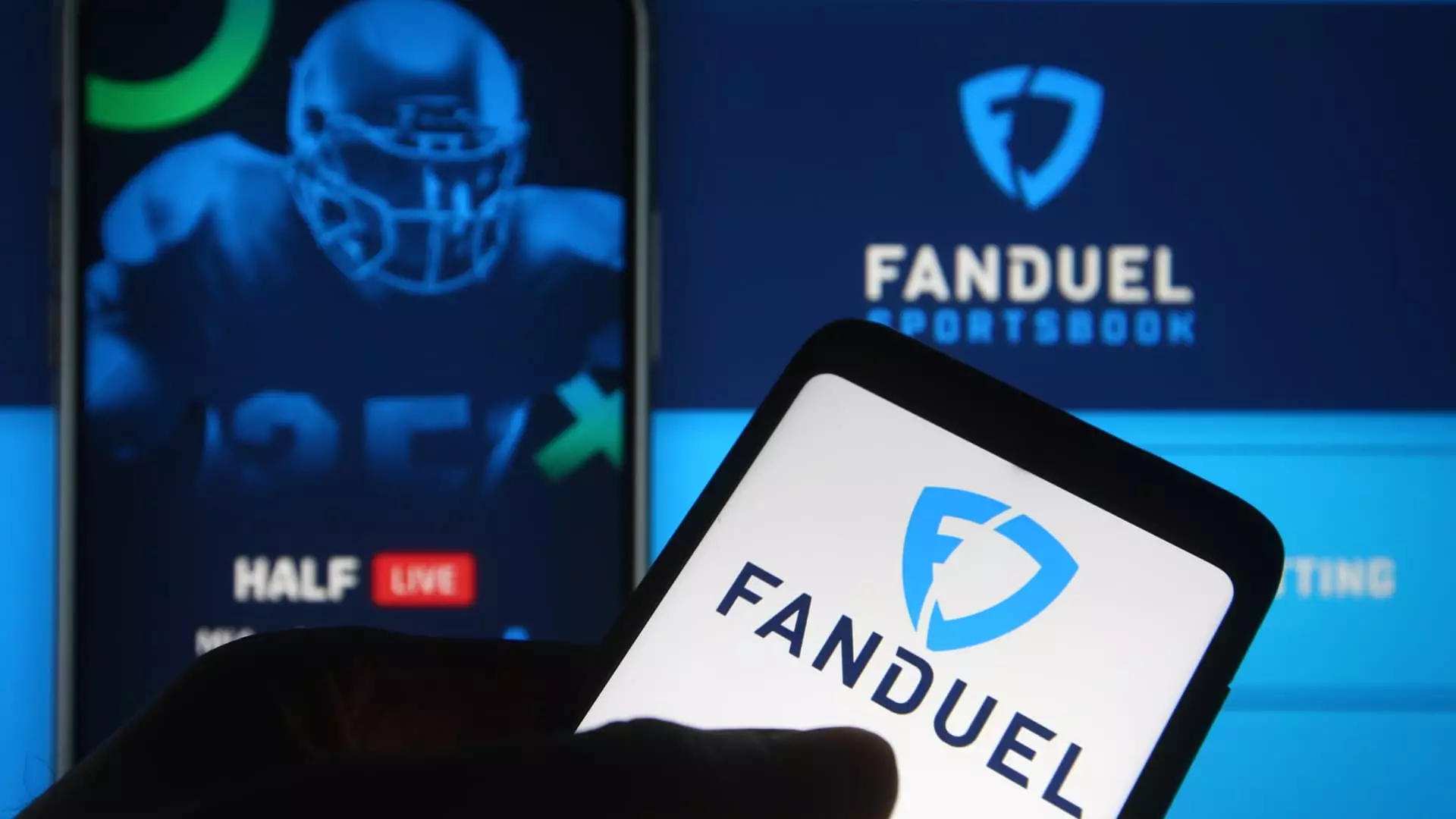The landscape of regional sports networks is shifting dramatically as Diamond Sports Group prepares to unveil its latest partnership with FanDuel, a subsidiary of Flutter Entertainment. This critical development emerges amid tumultuous financial conditions, as Diamond navigates the complexities of bankruptcy, and signals a broader trend in the industry—strategic alliances that align traditional sports broadcasting with burgeoning online gaming sectors.
In a recent court filing, Diamond Sports announced a naming rights agreement with FanDuel, poised to rebrand the Bally Sports channels, signaling a significant transformation just as major sports seasons, including the NHL and NBA, kick off. The timing of this partnership aligns impeccably with the launch of the hockey season and the imminent start of the basketball season, indicating a concerted effort to reinvigorate viewer engagement during a critical period.
FanDuel’s entry into this partnership bolsters its already formidable position in the sports betting market. As stipulated in the court documents, if Diamond emerges successfully from bankruptcy, FanDuel is set to secure a long-term stake, allowing it not only a naming rights partnership but also the option to purchase up to 5% equity in the restructured enterprise—an attractive proposition given the convergence of sports media and gambling interests in recent years.
Diamond Sports, an independent subsidiary of Sinclair Broadcast Group, has faced significant hurdles since filing for bankruptcy protection last year. These challenges have loomed large amid continuous negotiations with major sporting leagues while struggling to maintain operational stability. In particular, the company has reported ongoing discussions with the NBA, NHL, and MLB, indicating a fractured but essential relationship with these sports entities marred by contractual complications.
The company’s past associations have not been without controversy; their venture with Bally’s Corp. ended as part of a settlement earlier this year, shedding light on the complexities of the relationships between major corporations and regional sports networks. Such tumultuous turns have led to substantial changes, with several MLB teams opting out of contracts and restructuring broadcast options, highlighting a concerning trend for Diamond’s viability moving forward.
Market Trends: Streaming and Local Broadcasts
Amidst these internal restructuring issues, brands like FanDuel symbolize a shift towards new consumption models typical of the modern sports landscape. Teams are increasingly favoring local and direct streaming options over traditional sports networks, spurred by the need for wider audience reach and diversified revenue streams. For instance, MLB teams like the San Diego Padres and Arizona Diamondbacks have already moved to independent broadcasting solutions, further questioning the viability of legacy networks that once governed regional sports coverage.
As the partnership with FanDuel develops, Diamond Sports faces the daunting task of retaining existing contracts with teams. Reports reveal that they intend to maintain only the Atlanta Braves for the MLB 2025 season, a leap that underscores the struggles faced by the organization, losing the support of ten other teams in the league.
There are some promising innovations, however, being explored, as some NHL teams, including the Dallas Stars and Anaheim Ducks, shift towards over-the-top streaming services in collaboration with new media partners. This essential shift demonstrates a broader evolution away from conventional broadcasting while pushing networks to rethink their strategies in a rapidly changing audience landscape.
Diamond Sports’ path towards recovery hinges on successfully leveraging its new relations and emerging from bankruptcy, which has been projected for December. The approach to forming strategic alliances with entities like FanDuel represents a critical pivot, as traditional sports media seeks to reinvent itself and cater to modern consumers.
This partnership not only reflects significant insights about the changing dynamics of sports broadcasting but also highlights the growing significance of digital platforms in the overall sports ecosystem. If Diamond Sports can stabilize through this realignment and retain lucrative contracts, the reimagining of its regional sports networks may very well serve as a pivotal case study for traditional media in adapting to contemporary demands and evolving market trends.
While the challenges remain substantial, Diamond Sports is taking definitive steps to embrace new partnerships that could redefine its role within the ever-evolving sports broadcasting sector.

